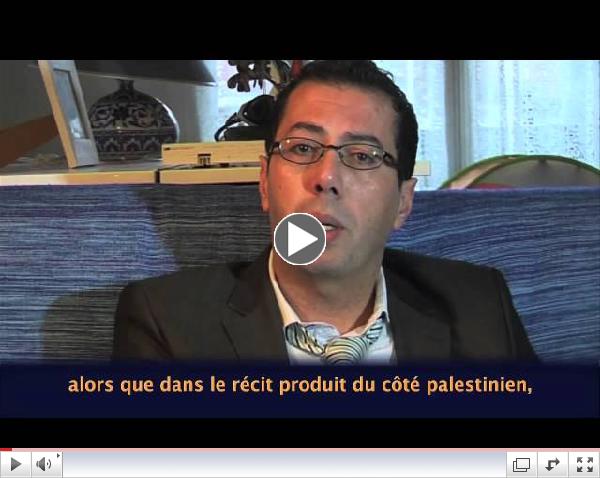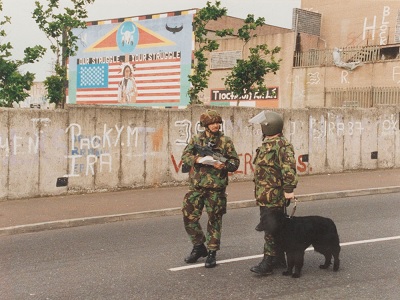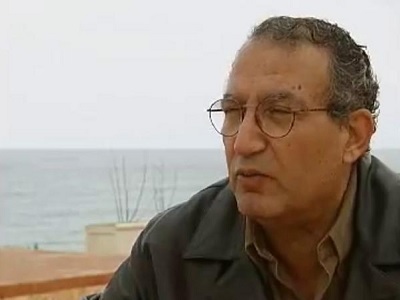|  |
We greatly appreciate your support. Please click HERE
to help. The Palestine Chronicle is a non-profit 501(c)3 organization. All donations are tax deductible.
|
| Palestine Chronicle | |
The Palestine Chronicle is an independent online newspaper that provides daily news, commentary, features, book reviews, photos, art, etc, on a variety of subjects. The Palestine Chronicle is a non-profit 501(c)3 organization.
|
|
|
|
With knowledge we can change the world
| |
Our budget is small but our influence is great. We are helping correct the world's perception of Palestine. And we need your help to continue with our work. Our target goal is $ 15,000, of which we raised $5000.
Please help the Palestine Chronicle spread the word. With knowledge we can change the world.
To make a contribution using your paypal account or credit card, please click HEREOr kindly send your contribution to:
PO Box 196
Mountlake Terrace
WA, 98043
USA
The Palestine Chronicle is a non-profit 501(c)3 organization. All donations are tax deductible.
The Palestine Chronicle is one of the most widely read and respected online news and commentary sources on Palestine and the Middle East.
Thank you from all of us,
The Palestine Chronicle
|
|
EDITORIAL
|
BDS: Permanent Address for Palestinian Solidarity
Roger Waters preparing to spray graffiti on the apartheid wall in Palestine. (Photo: War on Want)
By Ramzy Baroud
The intellectual dishonesty of Israel's supporters is appalling. But in some odd way, it is also understandable. How else could they respond to the massively growing Boycott, Divestment and Sanctions (BDS) campaign?
When a non-violent campaign - empowered by thousands of committed civil society activists from South Africa to Sweden and most countries in between - leads a moral campaign to isolate and hold into account an Apartheid country like Israel, all that the supporters of the latter can do is spread lies and misinformation. There can be no other strategy, unless of course, Israel's friends get their own moment of moral awakening, and join the BDS flood that has already broken many barriers and liberated many minds from the grip of Israeli hasbara.
According to their logic, and that of the likes of Rabbi Shmuley Boteach, writing in the New York Observer on Dec 12, legendary musician and human rights champion Roger Waters is an 'anti-Semite'. In fact, according to the writer, he is an 'anti-Semite' of the worst type. "I've read some heavy-duty attacks on Israel and Jews in my time, but they pale beside the anti-Semitic diatribe recently offered by Roger Waters, co-founder and former front man of the legendary British rock band Pink Floyd."
Of course, Waters is as far away from racism as Boteach is far away from truly representing the Jewish people or Judaism. But what has earned Waters such a title, which is often bestowed without much hesitation at anyone who dares to challenge Israel's criminal policies, military occupation and insistence on violating over 70 United Nations resolutions, is that Waters is a strong critic of Israel. In a recent interview with CounterPunch.org, Waters stated the obvious, describing Israel as a 'racist Apartheid regime', decrying its 'ethnic cleaning' of Palestinians, and yes, refusing to perform in a country that he saw as an equivalent to the "Vichy government in occupied France."
Boteach is particularly daring to go after Waters, a person adored by millions, and not only because of his legendary music, but also of his well-known courageous and moral stances. But once again, the panic felt in pro-Israeli circles is understandable. What Israeli officials describe as the de-legitimization of Israel is reaching a point where it is about to reach a critical mass. It is what Palestinian Gaza-based BDS activist Dr. Haidar Eid referred to in a recent interview as Palestine's South Africa moment.
In an article in the Israeli daily Haaretz published on Dec 12, Barak Ravid introduced his piece with a dramatic but truthful statement: "Western activists and diplomats are gunning for Israel's settlements in the Palestinian territories, and if peace talks fail, the rain of boycotts and sanctions could turn into a flood." Entitled "Swell of boycotts driving Israel into international isolation," Ravid's article establishes a concrete argument of why the boycott movement is growing in a way unprecedented in the history of Israel.
I am writing these words from Spain, the last stop on a European speaking tour that has taken me to four European countries: France, Switzerland, Luxembourg and Belgium. The purpose of my tour was to promote the recently published French edition of my last two books, the second being: My Father Was a Freedom Fighter, Gaza's Untold Story (Resistant en Palestine, une histoire vrai de Gaza). But at the heart of all my talks was the promotion of what I call 'redefining our relationship to the struggle in Palestine,' based first and foremost on 'moral divestment' from Israel. Only then, can we change our role from spectators and sympathizers to active participants as human rights defenders. The main address of such activities can be summed up in the initials: BDS.
What I learned throughout my tour, well attended and also covered in French media, was even to surprise me. The BDS debate is at such an advanced stage and it has indeed surpassed my expectations. In my last European tour of 2010, many of us were attempting to push the boundaries of the debate facing much resistance, even from groups and movements that were viewed as progressive. The situation has now changed in such an obvious away that on occasions I was compelled by the audience to discuss the most effective BDS strategies, as opposed to defending the very virtue of the tactic.
And within the two weeks of my travels, there was a flood of news of western governments, companies and academic institutions either joining the boycott or deliberating the possibility of doing so. The Romanian government, for example, is refusing to allow its labors to work in illegal Jewish settlements. A few years ago, this kind of news was simply unheard of.
But what changed? In some respects, nothing, and that is the crux of the argument. The Israeli occupation is more entrenched than ever; the illegal settlements are increasing and expanding; and the so-called peace process remains a charade maintained mostly for political self-serving reasons - a cover for the colonial policies of Israel, and a condition for continued US-western financial and political backing of the Palestinian Authority - and so on. But other factors are changing as well. BDS activists have found a common strategy and are formulating a unifying narrative that is finally liberating the Palestinian discourse from the ills of factionalism, empty slogans and limiting ideology. The new platform is both decisive in its morality and objectives, yet flexible in its ability to encompass limitless groups, religions and nationalities.
Indeed, there is no room for racism or hate speech in BDS platforms. What is equally as important is that there can also be no space for gatekeepers who are too sensitive about Israel's racially-motivated sensibilities, or those ever-willing to manipulate history in such a clever way as to prevent a pro-active strategy in being advanced. The ship has sailed through all of this, and the boycott is vastly becoming the new and permanent address of the international solidarity with the collective resistance and struggle of the Palestinian people.
Of course, when Roger Waters took the stances that he did, he knew well of the likes of Boteach who would immediately denounce him as 'anti-Semite.' The fact is, however, the number of 'Roger Waters' out there is quickly growing, and the power of their moral argument is widely spreading. Israeli smear tactics are not only ineffective but also self-defeating.
- Ramzy Baroud is an internationally-syndicated columnist, a media consultant and the editor of PalestineChronicle.com. His latest book is "My Father Was a Freedom Fighter: Gaza's Untold Story" (Pluto Press, London).
|
|
INTERVIEW
|
Conversation with Ilan Pappe: We Don't Have the Luxury to Wait Any Longer
Ilan Pappe.
(For The Wall has ears; conversations for Palestine - Follow us on facebook here)
Florent Barat: Ilan, you are an historian, you've published numerous books, amongst them the famous and controversial for some people "Ethnic cleansing of Palestine" in 2006. In 2007 you moved to England where you are currently teaching history at the Exeter University. You are part of what is called by some people "the new historians" who gives a new analysis and narrative of the history of Zionism and the history of the creation of Israel. You've taken some radical positions against the state of Israel. Why and when did you decide to stand on the Palestinian's side? And what were the consequences for you being Israeli?
Ilan Pappe: Changing point of view on such a crucial issue is a long journey, it doesn't happen in one day and it doesn't happen because of one event. I've tried in one of my books called "Out of the Frame" to describe this journey out of Zionism to a critical position against Zionism. If I had to choose a formative event that really changed my point of view in dramatic way, it would be the attack of the Israelis on Lebanon in 1982. For us who grew up in Israel, it was the first non-consensus war, the first war that obviously was a war of choice: Israel was not attacked, Israel attacked. Then the first Intifada happened. These events were eye openers in many ways for people like myself who already had some doubts about Zionism, about the historical version we learned at school.
It is a long journey and once you take it, you are facing your own society, you are even facing your own family and it is not a nice position to be in. People who know Israel know that it is an intimate and vibrant society so if you are against it, you feel it in every aspect of your life. I think this is one of the reasons why it takes a bit longer for the people like me to come to the point where you say there is no return: you have to subscribe to these views whatever the repercussions are.
To continue reading, click HERE
|
|
COMMENTARY
|
Northern Ireland and the Israel/Palestine 'Peace Process'
A file photo of a bomb disposal officer and infantry officer patrol West Belfast. (Photo: National Army Museum - NAM)
By Richard Falk
I visited Belfast the last few days during some negotiations about unresolved problems between Unionist and Republican (or Nationalist) political parties, I was struck by the absolute dependence for any kind of credibility of this process upon the unblemished perceived neutrality of the mediating third party. It would have been so totally unacceptable to rely on Ireland or Britain to play such a role, and the mere suggestion of such a partisan intermediary would have occasioned ridicule by the opposing party, confirming suspicions that its intention must have been to scuttle the proposed negotiations. In the background of such a reflection is the constructive role played by the United States more than a decade ago when it actively encouraged a process of reconciliation through a historic abandonment of violence by the antagonists. That peace process was based on the justly celebrated Good Friday Agreement that brought the people of Northern Ireland a welcome measure of relief from the so-called 'Time of Troubles' even if the underlying antagonisms remain poignantly alive in the everyday realities of Belfast, as well as some lingering inclination toward violence among those extremist remnants of the struggle on both sides that reject all moves toward accommodation. The underlying tension remains as Republican sentiments favor a united Ireland while the Unionists Having continue to be British loyalists, deeply opposed to any moves toward a merger with the Republic of Ireland ..
To continue reading click HERE
|
|
FEATURE
|
Dr. Eyad El-Sarraj, Palestinian Psychiatrist, Human Rights Campaigner Dies in Gaza
Dr. Eyad El-Sarraj (1944-2013)
By Julie Webb-Pullman
Dr. Eyad El-Sarraj, internationally-esteemed Palestinian psychiatrist and Commissioner-General of the Palestinian Independent Commission for Citizens' Rights, passed away in Gaza a short time ago.
His human rights work was not without personal cost - in 1996 he was arrested and tortured for condemning torture and violation of human rights by the Palestinian Authorities.
But it was also not without recognition - in 1997 he was winner of the Physicians for Human Rights Award, and in 1998 of the Martin Ennals Award for human rights defenders.
In 2010 he was awarded the Swedish labour movement's largest and most prestigious award, the Olof Palme Prize for his self-sacrificing and indefatigable struggle for the Palestinian people.
"In his professional and political work, Eyad El-Sarraj has stood on the side of the individual human being, regardless of nationality, gender or social position. He has brought into the light the destructive influence of repression on mental health," the Committee stated when announcing the award.
In the same year, Dr El-Sarraj was jointly awarded the Juan Jos� L�pez-Ibor prize in psychiatry, along with Professor Jules Angst, in recognition of his contribution to advancement of the rights and dignity of people with a mental illness, and his scientific research.
To continue reading click HERE.
|
|
LATEST NEWS
|
Dozens of Palestinians from Gaza's Jabalia refugee camp on Wednesday demonstrated in front of UNRWA offices to demand that the UN agency repair their homes following a four-day storm which caused widespread damage in the coastal territory. Thirty-five families from the refugee camp in northern Gaza are living in a UNRWA-run school because their homes [...]
Dec 18 2013 | Posted in News | Read More �
Israeli forces vacated the Bethlehem village of Arab al-Rashayida on Tuesday after conducting military drills in the area for several hours, locals said. Fawaz al-Rashayida, head of the local village council, told Ma'an that 5,000 heavily armed Israeli soldiers arrived in the village at dawn on Tuesday. Locals are used to Israeli forces performing drills [...]
Dec 17 2013 | Posted in News | Read More �
The largest and oldest academic organization dedicated to the study of the United States announced on Monday that its membership had voted overwhelmingly to endorse the boycott of Israeli academic institutions. In a landmark decision, more than 66 percent of voting members of the American Studies Association opted in favor of a resolution that supported [...]
Dec 17 2013 | Posted in News | Read More �
Gaza's agricultural sector suffered devastating losses during four days of severe weather conditions in the coastal territory, Gaza officials said Monday. Ministry of Agriculture official Ziad Hamadah told Ma'an that initial estimates suggest the animal breeding sector lost $1.7 million as a result of the storm, which killed 200,000 birds and 3,500 chickens. At least [...]
Dec 17 2013 | Posted in News | Read More �
Israel is scrapping a controversial draft law to relocate thousands of Bedouin residents of the Negev desert, an official said Thursday. Benny Begin, tasked with implementing the so-called Prawer Plan, said he had recommended to Prime Minister Benjamin Netanyahu to "end the debate on the law" in parliament. "The prime minister accepted this proposal," he [...]
Dec 13 2013 | Posted in News | Read More �
The World Health Organization on Sunday expressed concern over a humanitarian health crisis in the Gaza Strip, as the health infrastructure struggles to cope with severe shortages in basic supplies. "The accumulation of shortages in basic supplies in Gaza is leading to rapid deterioration in the social determinants of health for the population of 1.7 [...]
Dec 9 2013 | Posted in News | Read More �
Economy Minister Naftali Bennett has proposed that Israel annex parts of the occupied West Bank where most Jewish settlers live. The area is already under its full military control. "I favor implementation of Israeli sovereignty over the zone where 400,000 [settlers] live and only 70,000 Arabs," said the head of the far-right Jewish Home religious [...]
|
|
VIDEO - Ramzy Baroud on Gaza, Resistance and Need to Retell History
|
 | | Resistant en Palestine |
|
|

The Palestine Chronicle is an independent online newspaper that provides daily news, commentary, features, book reviews, photos, art, etc, on a variety of subjects. However, it's largely focused on Palestine, Israel, and the Middle East region. The Palestine Chronicle is a non-profit 501(c)3 organization. To contact the editor, submit an article or any other material, please write to: editor@palestinechronicle.com. For other inquiries write to: info@palestinechronicle.com. |
|
|







